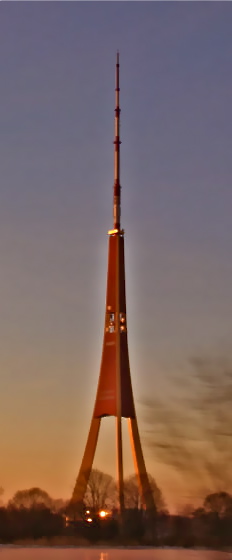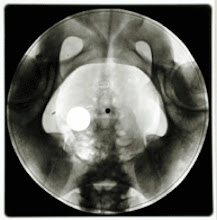The words “music” and “politics” have been printed much closer together than usual this week, but not without the usual hand-wringing. The New York Philharmonic, we are told, will travel to North Korea for 48 hours during a concert tour of Asia in February. The New York Times published a summary of the press conference at which the visit was announced, held jointly between Zarin Mehta, the orchestra’s president, and Pak Gil Yon, North Korea’s highest ranking diplomat in the United States. Both men seemed simultaneously to emphasize and downplay the political significance of the event, in a sense playing directly into each other’s hand.
Apparently Mr. Pak met with the orchestra management before the conference and insisted that questions about North Korea’s nuclear program be off-limits, arguing that “otherwise the atmosphere will be politicized.” The statement is of course absurd – how could the atmosphere not be politicized, nukes or no?
Of course one can expect comments of this ilk from the mouthpiece of a totalitarian regime – Kim Jong Ill’s reign has always depended upon a cynical rejection of reality and all the messiness it entails. Indeed, Hannah Arendt’s chilling assessment of the Soviet Union still rings true for one of its few remaining heirs-apparent: “there is no secret training school in Soviet Russia which gives out authentic facts about life abroad – but simply a general training in supreme contempt for all facts and all reality… It is this freedom from the content off their own ideologies which characterizes the highest rank of the totalitarian hierarchy.”
In the process of sidestepping the radioactive elephant in the room of any press conference involving the North Korean government, Pak also managed to subtly assert a much more significant claim: neither this conference nor the concert it has been held to announce will be political. Music, that “universal language,” is above the fray of nuclear weapons and human rights violations. As Schopenhauer put it (in one of Richard Taruskin’s favorite quotations), the arts "float idly above...[still looking for quotation]". Instrumental music, being nonrepresentational and thus inherently abstract, seemed to many eighteenth and nineteenth century thinkers to be the most autonomous of the arts, the most removed from the dirtiness of everyday life, the closest to that innocent, virtuous realm to which the artist aspires. As Taruskin and many others have made clear, this argument’s historical deployment has been one of the great tragic ironies of modern music history: it is a political statement to say that something is not political.
Of course it’s easy enough to doubt the political innocence of Mr. Kim’s intentions in bringing this orchestral monster of the Western cultural elite to Pyongyang. But what about the Philharmonic?
Zarin Mehta, the orchestra’s manager, seems to agree wholeheartedly with Pak and Schopenhauer:
"We only play great music. We don't think about politics."
Mehta even goes out of his way to poke fun at one of the few twentieth century composers who had the guts to engage then-contemporary politics in his music (albeit in opera, a genre decidedly exempt from the autonomy-claims of instrumental music): “Did you want us to play 'Chairman Mao dances?” This is not about politics, it’s about art.
I do not need to summarize Taruskin’s recent arguments about the inherent fallacy in such a position, and the many historical injustices it has wrought, to point out its most obvious fault: Mehta is conceding the utter pointlessness of the Orchestra’s visit.
Of course he seems to back off from his own assertion of the separation of the aesthetic and the political when he suggests that the goal of the visit is to help “open the country.” (Open it to what? one might ask – the culturally decaying elite of Western modernism? Indeed, the Times’ references to trips by American Orchestras to the Soviet Union underline the anachronism of both Kim Jong Ill himself and the Philharmonic’s visit) But the suggestion that the music being played, including the national anthems of both nations, will be empty of political content, is tantamount to arguing that a press conference in New York shared by a leading American cultural figure and North Korea’s highest ranking American diplomat will not be politicized.
Regardless of the inevitable posturing and hand-wringing, I suppose it can’t hurt for the Philharmonic to make this visit. I do not share the opinion that it will come as an implicit endorsement for Kim Jong Ill (an earlier article quoted Lawrence Kramer calling it a “propaganda coup”). If anything, like Khrushchev’s thaw, it will only serve to underline to the backwardness of North Korea’s society to at least a few of its citizens, insulated as they are from the world beyond their borders. Music can be deployed to political ends, and even to good ones, despite the contrary claims of its supporters.
Still, I think it is worth pointing out the resurgence of an irony that desperately needs to be put to bed: must the political deployment of music, like that of a Stalinist decree, always be accompanied by a grandiose assertion of music’s inherent political innocence? Is the hazy idealism that has always accompanied Classical instrumental music still necessary for its legitimacy? If so, all those idealists-cum-pessimists banging the death knolls of American classical music may be on to something.
Mehta had quite a podium. He stood, awkwardly, alongside a diplomat from a country known to have forced millions of its own inhabitants into starvation while its paranoid, eccentric misanthrope of a leader listened to Madonna and ate Kentucky Fried Chicken smuggled from Moscow. Perhaps the invitation was his to lose, but the opportunity to actually say something was his to lose as well, and he happily tossed it aside as a bit of banal political bickering far beneath him. This, after all, was about Music, a realm of innocence and beauty not to be troubled with threats of starvation and nuclear holocaust.
One can only hope the musicians themselves, who will lead master-classes and visit local schools, will not hold such despicable delusions about their art. One can also hope that the orchestra’s coming visit will open up a much-needed forum for discussion of music’s political content, as all of us try to come to terms with the many political manifestations that this “apolitical” concert, and even the music performed on it, will have.
Tuesday, December 11, 2007
Subscribe to:
Posts (Atom)



